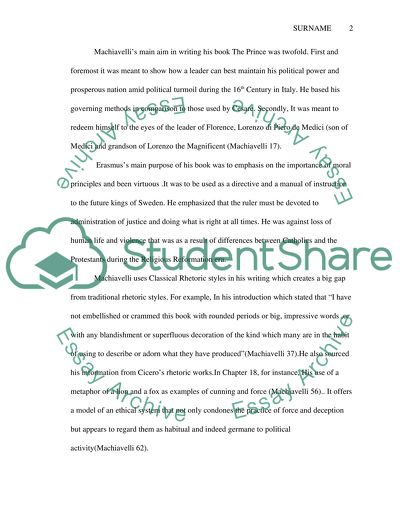Cite this document
(Machiavelli's The Prince and Erasmus's The Education of a Christian Book Report/Review, n.d.)
Machiavelli's The Prince and Erasmus's The Education of a Christian Book Report/Review. Retrieved from https://studentshare.org/philosophy/1495985-comparative-essay-between-machiavelli-is-the-prince-and-erasmuss-the-education-of-a-christian-prince
Machiavelli's The Prince and Erasmus's The Education of a Christian Book Report/Review. Retrieved from https://studentshare.org/philosophy/1495985-comparative-essay-between-machiavelli-is-the-prince-and-erasmuss-the-education-of-a-christian-prince
(Machiavelli's The Prince and Erasmus'S The Education of a Christian Book Report/Review)
Machiavelli's The Prince and Erasmus'S The Education of a Christian Book Report/Review. https://studentshare.org/philosophy/1495985-comparative-essay-between-machiavelli-is-the-prince-and-erasmuss-the-education-of-a-christian-prince.
Machiavelli's The Prince and Erasmus'S The Education of a Christian Book Report/Review. https://studentshare.org/philosophy/1495985-comparative-essay-between-machiavelli-is-the-prince-and-erasmuss-the-education-of-a-christian-prince.
“Machiavelli's The Prince and Erasmus'S The Education of a Christian Book Report/Review”, n.d. https://studentshare.org/philosophy/1495985-comparative-essay-between-machiavelli-is-the-prince-and-erasmuss-the-education-of-a-christian-prince.


